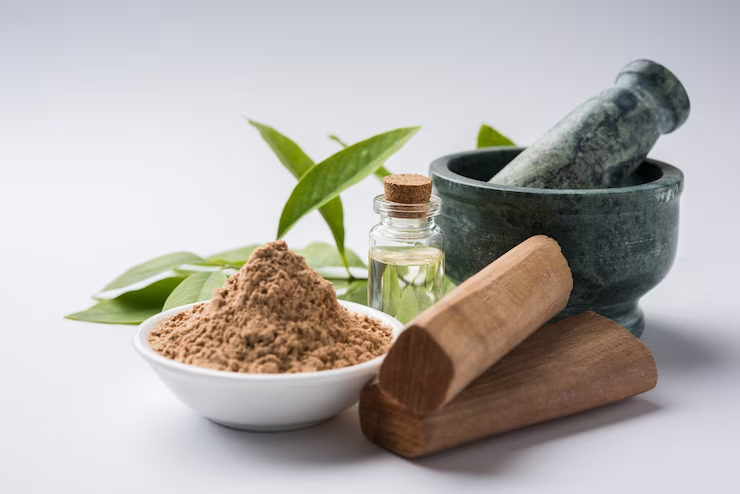In today’s fast-paced world, many seek natural solutions to manage stress, boost vitality, and support overall health. Ashwagandha, a cornerstone of Ayurvedic medicine, has surged in popularity for its adaptogenic properties and diverse wellness benefits. In this comprehensive guide, you’ll discover how works, its key advantages, safe usage guidelines, and tips for selecting a quality supplement.
What Is Ashwagandha? Origins and Traditional Use
Ashwagandha (Withania somnifera) is a hardy shrub native to India, North Africa, and the Middle East. For over 3,000 years, practitioners of Ayurveda have prescribed its root and leaf extracts to promote longevity, vitality, and mental resilience. The Sanskrit name translates to “smell of the horse,” referencing its legendary ability to impart strength and vigor. Traditionally, powdered root finds its way into tonics, teas, and herbal formulations.
Ashwagandha for Stress Relief and Mental Wellness
One of the hallmark benefits of Ashwagandha is its capacity to help the body adapt to stress. As an adaptogen, it modulates the hypothalamic-pituitary-adrenal (HPA) axis, reducing cortisol—the body’s primary stress hormone. Clinical research demonstrates that daily supplementation with standardized extract can:
-
Lower perceived stress levels
-
Improve sleep quality and duration
-
Alleviate symptoms of mild anxiety
By calming the mind and supporting hormonal balance encourages a sense of tranquility without sedation.
Boosting Energy and Cognitive Function with Ashwagandha
Beyond stress management, Ashwagandha offers notable benefits for energy metabolism and brain health. Its bioactive compounds, called withanolides, enhance mitochondrial function, leading to greater cellular energy production. As a result, many users report:
-
Increased stamina during workouts
-
Reduced physical and mental fatigue
-
Sharper focus and quicker information processing
Emerging studies suggest that regular intake may support memory retention, reaction time, and overall mental clarity—making it a popular choice among students and professionals alike.
Hormonal Balance and Reproductive Health with Ashwagandha
Hormone imbalances often contribute to fatigue, mood swings, and reproductive issues. Ashwagandha has shown promise in promoting endocrine health by:
-
Supporting healthy testosterone levels in men
-
Enhancing sperm count and motility
-
Regulating menstrual cycles in women
-
Easing symptoms of polycystic ovary syndrome (PCOS)
By nurturing hormonal harmony It can also boost libido and fertility, benefiting couples trying to conceive.
Immune Support and Anti-Inflammatory Effects of Ashwagandha
A resilient immune system is vital for warding off infections and chronic inflammation. Ashwagandha stimulates the activity of natural killer (NK) cells and macrophages—key players in your body’s defense mechanisms. Its potent antioxidant and anti-inflammatory properties help:
-
Decrease markers of inflammation (e.g., C-reactive protein)
-
Protect cells from oxidative damage
-
Shorten recovery time after illness or intense exercise
Regular supplementation may translate into fewer sick days and improved recovery.
How to Use Ashwagandha: Dosage, Forms, and Timing
Ashwagandha supplements come in various forms—capsules, powders, tinctures, and teas. To experience its full benefits:
-
Standardized Extracts: Aim for products standardized to at least 5% withanolides.
-
Typical Dosage: 300–600 mg per day of extract, divided into one or two doses.
-
Timing: Take with food to enhance absorption; morning usage supports daytime energy, while evening intake may improve sleep quality.
Beginners should start with the lower end of the dosage range and gradually increase as tolerated.
Potential Side Effects and Drug Interactions with Ashwagandha
Although generally well tolerated, Ashwagandha can cause mild adverse effects in some individuals:
-
Gastrointestinal upset (nausea, diarrhea)
-
Drowsiness or mild sedation
-
Headache
People with thyroid disorders, autoimmune diseases, or those taking sedatives, blood pressure medications, or immunosuppressants should consult a healthcare professional before starting.
Choosing a High‑Quality Ashwagandha Supplement
With growing market demand, not all Ashwagandha products are created equal. When selecting a supplement, look for:
-
Third‑Party Testing: Certifications from NSF, USP, or other independent labs.
-
Organic Sourcing: Purity without pesticides or heavy metals.
-
Transparent Labeling: Clear information on withanolide content and extract ratio.
-
Reputable Brand: Positive customer reviews and clinical trial support.
These criteria ensure you receive a potent, safe formulation.
Integrating Ashwagandha into a Holistic Wellness Routine
For optimal results, combine Ashwagandha with healthy lifestyle practices:
-
Balanced Diet: Rich in fruits, vegetables, lean proteins, and whole grains.
-
Regular Exercise: A mix of cardio, strength training, and flexibility work.
-
Stress Management: Mindfulness, yoga, or meditation.
-
Adequate Sleep: Aim for 7–9 hours per night.
Synergizing Ashwagandha with these habits magnifies its adaptogenic effects.
Conclusion: Embrace the Benefits of Ashwagandha
Incorporating Ashwagandha into your daily regimen can be a natural, effective way to combat stress, boost energy, balance hormones, and bolster immunity. By choosing a high‑quality supplement and following recommended dosage guidelines, you’ll harness the full therapeutic potential of this time‑tested herb. Always discuss new supplements with your healthcare provider, especially if you have underlying health conditions or are taking medications. With proper use, can become a powerful ally on your journey to vibrant health.






